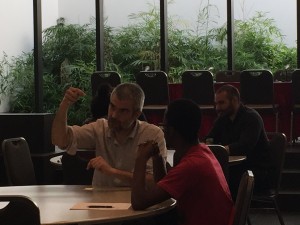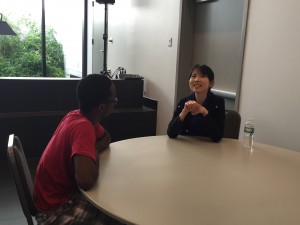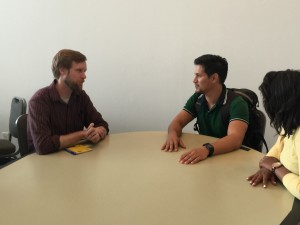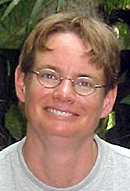The following Genomics-oriented Workshops are offered by the University Library this fall.
For more information or to register, go to http://library.stonybrook.
Bioinformatics Series
· Intro to Bioinformatics Resources – Jennifer Lyon
o HSL EBM Room, Monday, 9/12/16, 9-10:30am
o Melville, Classroom A, Tuesday, 9/13/16, 9-10:30am
o There are a vast number of bioinformatics databases, software tools, and resources available on the web. This workshop will help you get started by identifying key ‘entrance’ points and high quality resources for specific research areas and purposes.
· BLAST Sequence Similarity Searching – Jennifer Lyon
o HSL EBM Room, Monday, 10/17/16, 9-11am
o Melville, Classroom A, Tuesday, 10/18/16, 9-11am
o The NCBI’s Basic Local Alignment Search Tool (BLAST). BLAST allows rapid, easy sequence similarity searching online. However, use of BLAST is only truly effective when you understand what it does – and doesn’t do. This workshop will introduce how sequence similarity searching works and demonstrate some of the various BLAST search options.
· Molecular Structure Viewing with Cn3D – Jennifer Lyon
o HSL EBM Room, Monday, 11/14/16, 3-5pm
o Melville, Classroom A, Tuesday, 11/15/16, 9-11am
o This workshop will introduce the primary databases, PDB & MMDB, which archive the molecular structures of proteins and other molecules, and will demonstrate the NCBI’s Cn3D software tool for viewing and manipulating those structures.
· Clinical Genetics Resources – Jennifer Lyon
o HSL EBM Room, Thursday, 12/1/16, 9-10:30am
o Melville, Classroom A, Tuesday, 11/29/16, 9-10:30am
o This workshop will introduce resources focused on the relationship between human disease and genetics, such as OMIM, GeneReviews, and MedGen.
Scholarly Communications Issues Series
· Organizing Your Publications: Author IDs and Profiles – Jennifer Lyon & Clara Tran
o Monday, 10/3/16, HSL EBM Room, 2-3pm
o Organizing and managing your publications, particularly for grant biosketches, can be a challenge. The ORCID project is an international effort to provide every scholarly author with a unique identifier. SciENcv is a new tool from the NCBI that allows researchers to create and store biosketches specifically formatted for NIH and NSF grants, including an automated import function from ORCID. These resources will be demonstrated.
· My NCBI: My Bibliography, SciENcv Biosketches, & Managing Search Results – Jennifer Lyon & Clara Tran
o Thursday 10/6/16, HSL EBM Room, 9-10am
o The National Center for Biotechnology Information (NCBI) at the National Library of Medicine provides access to a wide range of databases and resources including PubMed. The website offers a free user account (My NCBI) which allows the researcher to save searches, collections of articles & other database records, set up alerts, manage their own publications, and create grant biosketches. This course will demonstrate the My NCBI account features.
· NIH Public Access Policy – Jennifer Lyon
o Tuesday, 10/11/16, HSL EBM Room, 1-2pm
o Compliance with the NIH Public Access Policy is a requirement for all published peer-reviewed papers based on NIH funding; failure to comply can delay or stop further funding. So what is the policy and how is compliance managed?











